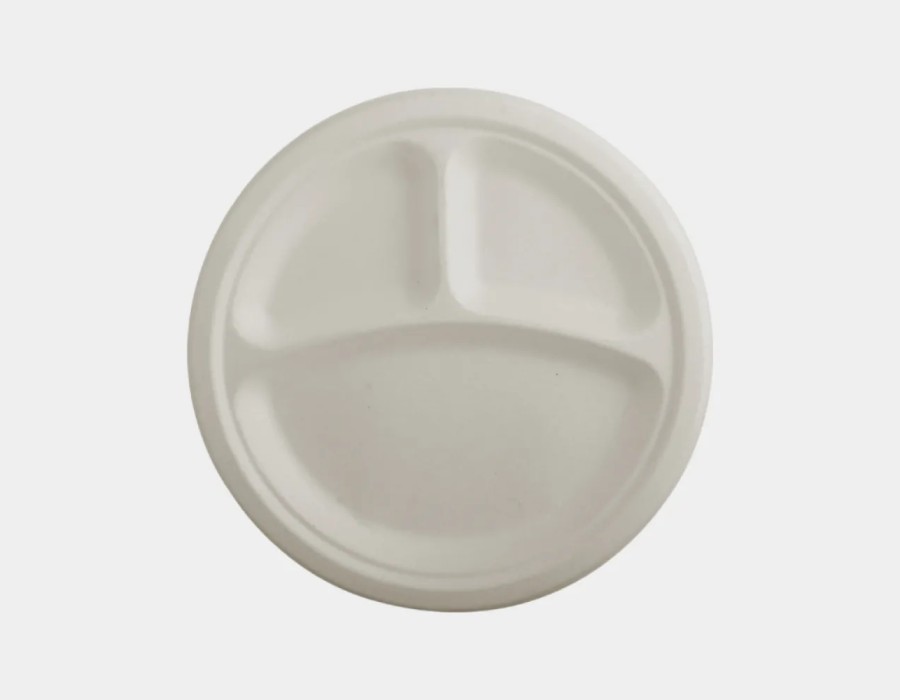In today’s eco-conscious world, sustainable packaging has become essential in the food and beverage industry. Bio bagasse packaging, made from the fibrous byproduct of sugarcane, is gaining popularity as an eco-friendly alternative to traditional packaging materials. By adopting bio-bagasse, food, and beverage companies can reduce their environmental footprint and offer greener options to consumers. Here’s a look at the top benefits of bio-bagasse packaging and why it’s shaping the future of sustainable packaging.
Eco-Friendly and Sustainable
One of the primary reasons bio bagasse packaging is in demand is its environmental sustainability. Unlike plastic, which can take hundreds of years to decompose, bagasse is fully biodegradable and compostable, breaking down in a matter of months when properly disposed of.
Renewable Resource: Sugarcane is a renewable resource, and bagasse is a byproduct of sugar extraction, which reduces the need for new materials and promotes resource efficiency.
Reduced Plastic Waste: Bio bagasse packaging helps lessen plastic pollution, addressing the food industry’s biggest waste concerns and reducing its environmental impact on oceans and landfills.
Suitable for Hot and Cold Foods
Bio bagasse packaging is known for its durability and versatility, making it ideal for various food and beverage applications. It withstands temperatures up to 200°F (93°C) without losing its shape, making it suitable for both hot and cold foods.
Heat Resistant: Bio bagasse packaging is a top choice for hot foods, from soups to baked items, as it does not melt or deform when exposed to heat.
Moisture and Grease Resistant: Naturally resistant to grease and moisture, bio-bagasse packaging prevents leakage and helps maintain food freshness, making it reliable for both solid and liquid-based items.
Enhances Brand Image and Customer Loyalty
Sustainable practices resonate strongly with today’s consumers. Brands that choose eco-friendly packaging like bio bagasse often enjoy a positive brand image, building trust and loyalty with environmentally conscious customers.
Positive Brand Perception: Switching to bio-bagasse packaging helps brands align with consumer values, enhancing brand image.
Increased Customer Loyalty: By meeting demand for sustainable packaging, companies can improve customer satisfaction and loyalty, ultimately driving repeat business.
Safer and Non-Toxic
Bio bagasse packaging is free from harmful chemicals found in plastics, like BPA, making it a safer alternative for consumers and the environment. Its natural composition makes it safe for both food packaging and disposal.
Food-Safe Packaging: The production of bio-bagasse minimizes the risk of contamination, ensuring the safety of food items and consumer health.
No Harmful Residues: Bagasse leaves no toxic residues, making it a cleaner and safer choice for packaging.
Cost-Effective and Readily Available
Thanks to its availability as a byproduct of sugar production, bagasse is affordable and accessible. Its widespread production makes it a cost-effective choice for food and beverage businesses looking to transition to sustainable packaging.
Economically Viable: As a byproduct of sugarcane processing, bagasse is readily available, making it a budget-friendly option.
Lower Disposal Costs: Bio bagasse is compostable, which can help reduce waste disposal costs for companies that partner with composting facilities.
Conclusion
Bio bagasse packaging offers a comprehensive solution for food and beverage businesses aiming to reduce their environmental impact. Its benefits range from sustainability and safety to customer loyalty and affordability, positioning it as a leading choice for eco-conscious packaging. As the demand for sustainability continues to grow, bio bagasse packaging will likely play a key role in the future of the food and beverage industry, offering an eco-friendly, cost-effective, and reliable packaging solution.





Comments